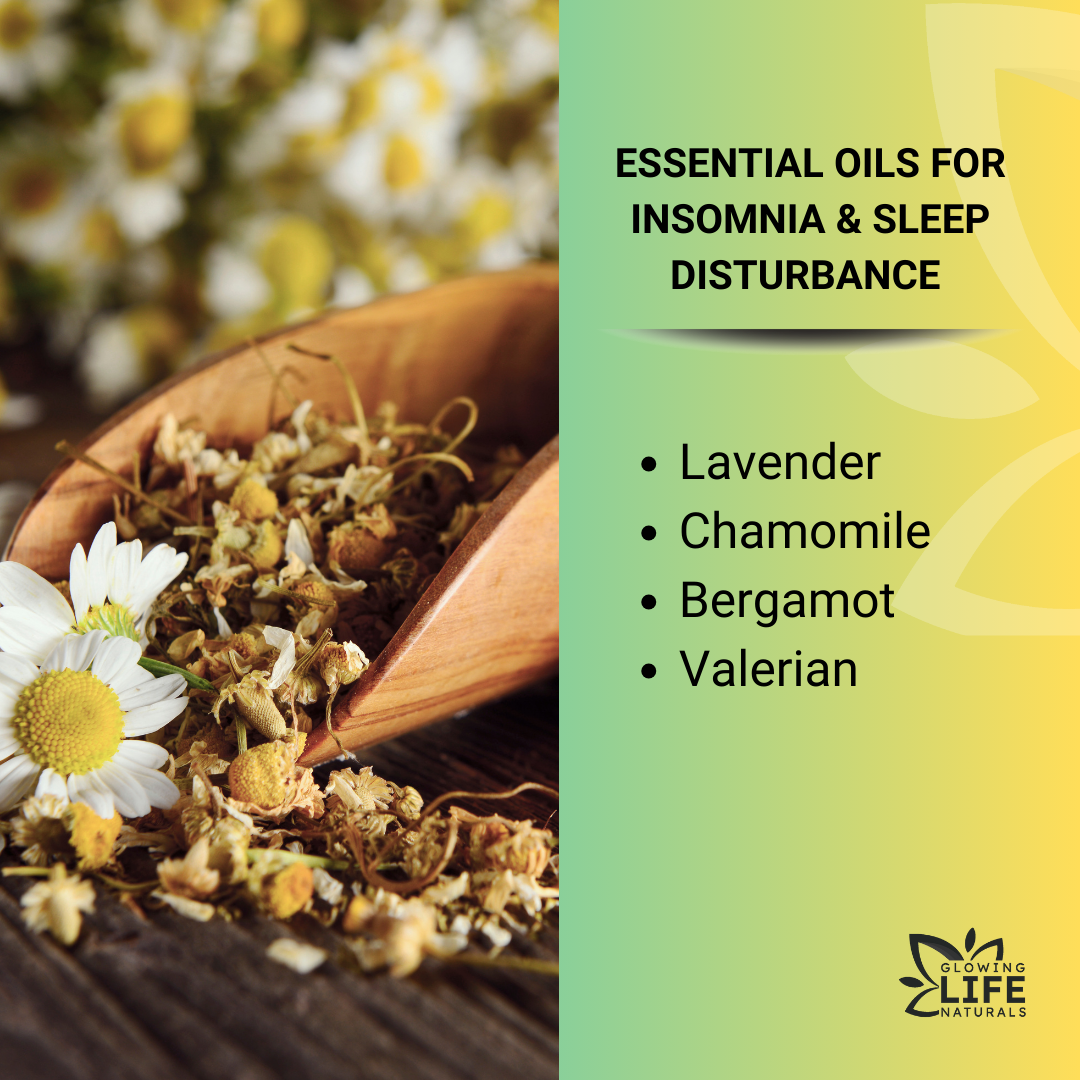Disclaimer, Privacy Policy, Terms of Service
Sleep is as vital to our health as eating, drinking, and breathing. Insomnia and sleep disturbances can have a profound impact on our energy, mood, and overall health. In the search for natural sleep aids, essential oils have emerged as a popular and effective remedy for those struggling to find restful slumber. In this article, we'll explore how these potent plant extracts can help you drift off into a peaceful night's sleep.
Key Takeaways:
- Essential oils can promote relaxation and improve sleep quality by interacting with the body's limbic system.
- Lavender, chamomile, bergamot and valerian are among the most effective essential oils for combating insomnia and sleep disturbances.
- Consistent use of essential oils, as part of a bedtime routine, can help establish a pattern that signals the body it's time to wind down.
Understanding Insomnia and Sleep Disturbance
Insomnia is more than just the occasional difficulty in falling or staying asleep. It's a common sleep disorder that can be short-term or chronic, affecting your energy levels, mood, and ability to function during the day. Sleep disturbances, on the other hand, can include a range of issues from sleep apnea to restless leg syndrome, all of which disrupt the quality of sleep.
The Science Behind Essential Oils and Sleep
Essential oils are concentrated plant extracts obtained through distillation or cold pressing. They contain the essence of the plant's fragrance and properties. When inhaled, the scent molecules in essential oils travel from the olfactory nerves directly to the brain and impact the amygdala, the emotional center of the brain. This interaction can have a calming effect, which is beneficial for sleep.

Lavender: The All-Star Sleep Aid
Lavender oil is widely recognized for its natural sedative properties. Research has shown that lavender oil can improve sleep quality, increase sleep duration, and reduce the number of nightly awakenings. Its calming scent is particularly effective in creating a tranquil environment conducive to sleep.
Chamomile: More Than Just a Tea
Chamomile is another well-known sleep promoter, often consumed as a tea. However, chamomile essential oil is also potent in combating insomnia. Its calming effects can reduce anxiety, which is often a contributor to sleeplessness. Inhaling chamomile oil before bed can help soothe the mind and prepare the body for rest.
Valerian: Nature's Valium
Valerian root has been used for centuries as a remedy for various ailments, including sleep disorders. Valerian essential oil can reduce the time it takes to fall asleep and ensure a deeper, more restful night's sleep. Its compounds interact with GABA receptors in the brain, which help regulate the nerve impulses in your nervous system.
Bergamot: The Stress Reliever
Bergamot essential oil is known for its ability to reduce stress and anxiety, which are common culprits behind sleep disturbances. Unlike other citrus oils that can be stimulating, bergamot has a unique calming effect. It can lower heart rate and blood pressure, creating an ideal state for sleep.
Creating a Sleep-Inducing Environment
The environment in which you sleep can significantly impact the quality of your rest. Essential oils can be used to create a sleep-inducing atmosphere through diffusers, pillow sprays, or topical applications. Ensuring your bedroom is a sanctuary for sleep is crucial, and the addition of essential oils can enhance this environment.
The Role of Aromatherapy in Sleep Hygiene
Aromatherapy involves the therapeutic use of essential oils to improve physical and psychological well-being. Incorporating aromatherapy into your sleep hygiene routine can signal your body that it's time to wind down. Consistent use of a particular scent can reinforce the sleep-wake cycle, aiding in quicker and more restful sleep.
Practical Tips for Using Essential Oils
To harness the benefits of essential oils for sleep, consider methods such as diffusing oils in your bedroom before sleep, applying diluted oils to the soles of your feet, on your wrist or adding a few drops to a warm bath. It's important to use essential oils safely, always diluting them appropriately and conducting a patch test for topical applications.
Combining Essential Oils for Enhanced Effects
Blending essential oils can create a synergistic effect that enhances their individual properties. For sleep, consider combining lavender with chamomile or bergamot with valerian. These combinations can be used in a diffuser or mixed with a carrier oil for topical application as part of your bedtime routine.
Essential Oils and Lifestyle Changes for Better Sleep
While essential oils can be a powerful tool for improving sleep, they should be part of a broader approach that includes lifestyle changes. Maintaining a regular sleep schedule, reducing screen time before bed, and creating a comfortable sleep environment are all important factors in combating insomnia and sleep disturbances.
Summary
Essential oils offer a natural and effective way to improve sleep quality and combat insomnia. By understanding how these oils interact with the body and incorporating them into a sleep hygiene routine, you can create a conducive environment for restful sleep. Remember to use essential oils safely and consider making lifestyle changes that support better sleep for the best results.
FAQ Section
Q: Can essential oils be used for children with sleep problems? A: Yes, some essential oils can be used for children, but it's important to choose child-safe oils and dilute them properly. Always consult with a healthcare provider before using essential oils with children.
Q: How long does it take for essential oils to affect sleep? A: The effects of essential oils can vary from person to person. Some may notice an immediate calming effect, while for others, it may take a few days to see improvements in sleep patterns.
Q: Are there any risks associated with using essential oils for sleep? A: Essential oils are generally safe when used correctly. However, they can cause allergic reactions or skin irritation if not properly diluted. It's also important to use high-quality, pure essential oils and to follow recommended usage guidelines.
